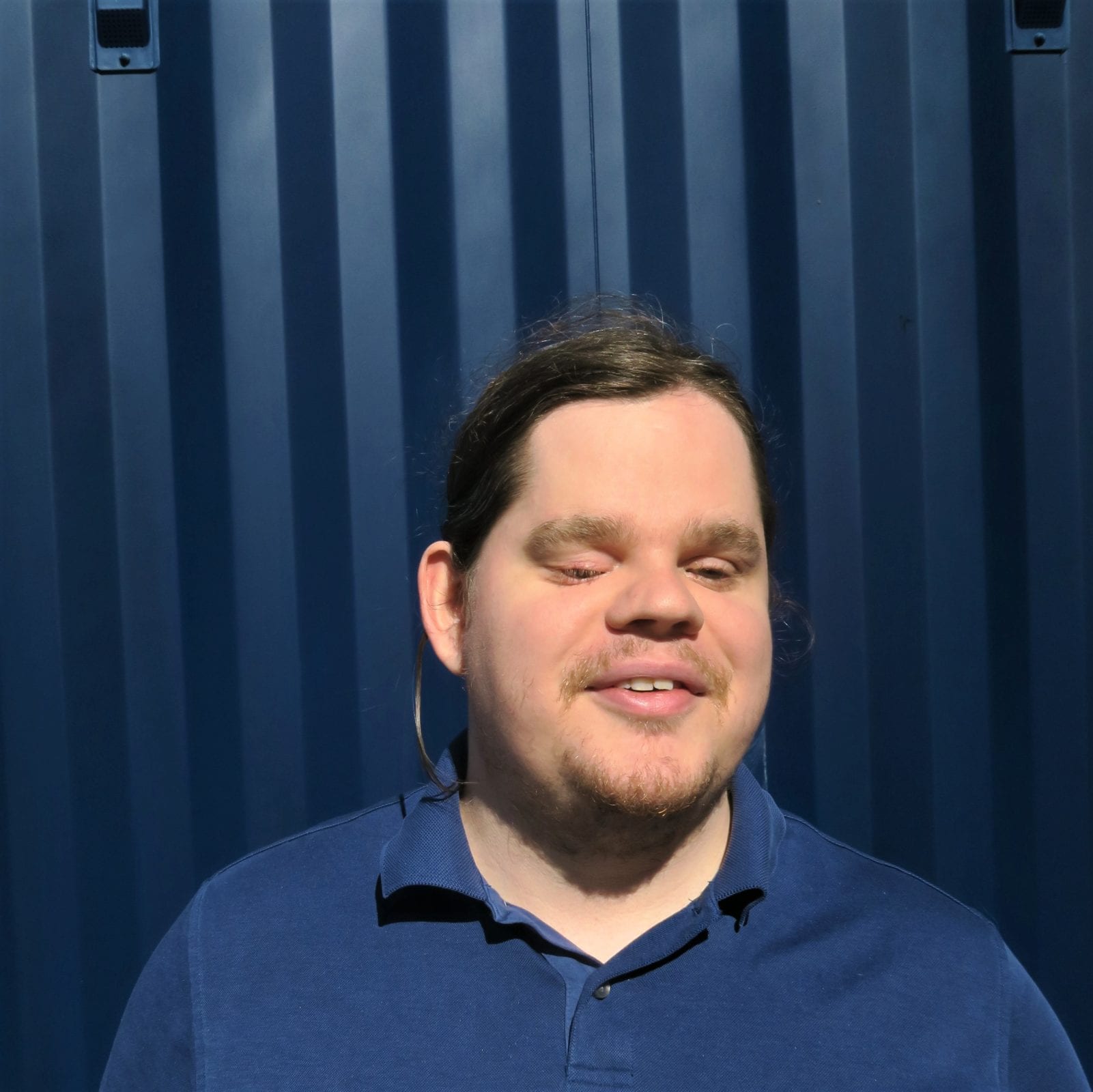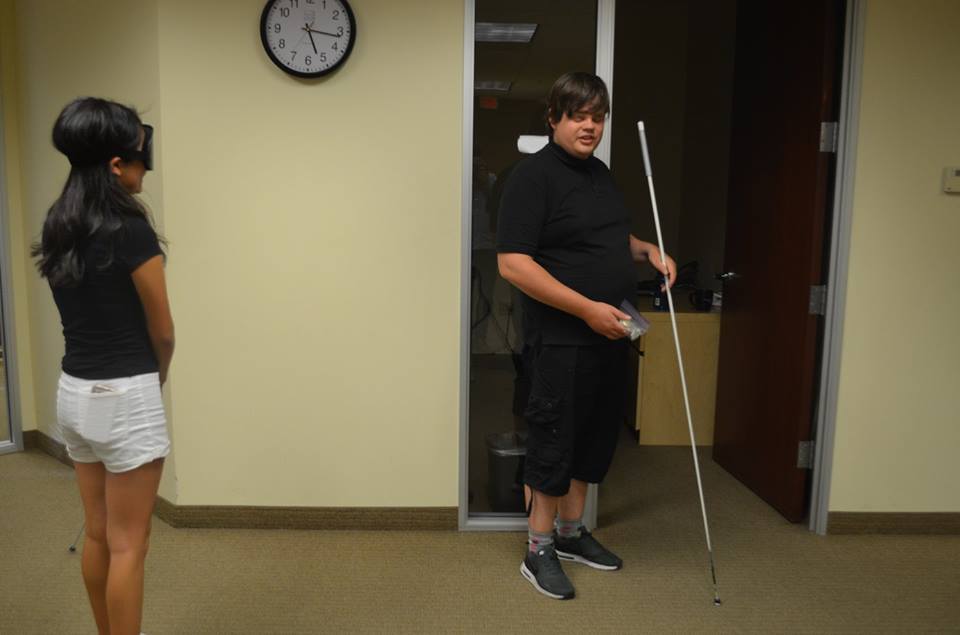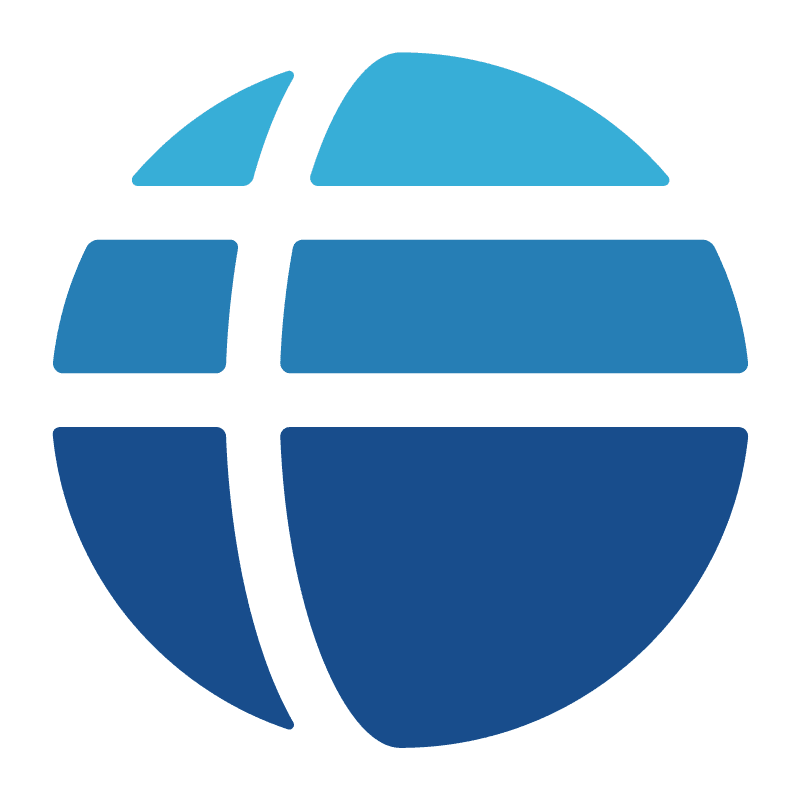An Advocate for the Disabled Talks About the Importance of Giving Back

Interview with Eyþór Kamban Þrastarson, Fulbright fellow 2015-2016
Eyþór Kamban Þrastarson holds a B.A. in Sociology with a concentration on gender studies from the University of Iceland and an MA in Counseling and Guidance with a concentration on orientation and mobility from Louisiana Tech University in the town of Ruston, receiving a Fulbright grant in 2015. After finishing his degree, Eyþór worked at the Arizona Saavi Services for the blind as an Orientation and Mobility instructor. In 2012 he co-wrote a musicology textbook for the blind, using his own experience as a blind individual passionate about music. He has served on various boards for organizations in Iceland dedicated to disability rights and works as an Orientation and Mobility Instructor. Eyþór is currently one of the project managers of a Erasmus collaboration project which aims to empower and enable young people that are blind and visually impaired, for them to take initiative.
We called Eyþór to ask him about his Fulbright experience, his work and his goals. First we asked what had led him to his current path.
“When I started high school I realised I was insecure about walking between buildings or going to meet my friends at a café by myself. That’s when I started Orientation and Mobility training and discovered that I can walk between places like anyone else. It was not a matter of ability, it was a matter of confidence. I realised everything I had been missing, and I wondered why blind and visually impaired people assume they can’t leave the house without someone with sight.”
Why did you decide to pursue this particular degree in Louisiana Tech University?
“My professor, Daniel Kirsch, told me about the center that facilitates this program and that it was one of few programs accessible for blind people to become orientation instructors. I was intrigued by the program’s ideology of ‘structured discovery’, so I went to a Fulbright presentation and decided to apply to study in the U.S. I find the current approach to Orientation instruction to be limited with the sighted instructor finding the way from A to B and then guiding the blind person; the assumption being that they can’t figure it out themselves. The blind person therefore thinks that he or she always needs a sighted person to teach him or her how to safely move in space.
In my opinion, you should learn as a blind person not only how to walk from your home to your job, but you should learn how to teach yourself to walk from your home to your job. Having a sighted orientation instructor try to teach you how to be like a sighted person is like your language teacher solely teaching you how to order food in a restaurant, instead of teaching you the whole spectrum of the language. I can only speak for myself on this issue, and it’s up to others whether they want to listen or not.”
How was your experience in the program and afterwards?
“Being in the town of Ruston, there are blind people everywhere that come to the center to learn how to be independent; studying things like orientation, daily living skills and structured discovery. In order to get my degree, I worked as an assistant to the center’s instructors, focusing on orientation or ‘cain travel’ which is basically how to move around space using the white cane. The program concluded with a summer internship working outdoors eight hours a day – you could say I drank a lot of water that summer. After graduation I was offered a job at Arizona Saavi Services for the blind doing exactly what I studied to do.
“When my visa expired I came back to Iceland and knocked on the door at the National Institute for the Blind, Visually Impaired and Deafblind, which is the institute responsible for this kind of service, and I got a job teaching kids how to use computers. Of course I would prefer to work as the kind of orientation instructor I studied to be, having an opportunity to introduce that ideology in Iceland. Knowing how far I got with the kind of orientation instruction I received, I just want to help others in the same way. For example, when I arrived in Arizona, I walked to my job on the first day. I’m not sure a lot of blind people even know that is possible. But before we can implement changes in Iceland and Europe, there needs to be a shift in societal view on how we view disabled people. Changes take time.
Now I sit on the Board of the Icelandic Association of the Visually Impaired and in a working group of the Icelandic Disability Alliance (OBI), where I hope to make a contribution. These organizations have been central to improving rights for the disabled in Iceland. For example, the OBI has ensured the right for disabled people to have so-called User Controlled Personal Assistance, which is an important development.
I’m also a part of a team that organizes a big Erasmus collaboration project, called Viva, which aims to empower and enable young people that are blind and visually impaired, with participants from all over. One of the things I am working on now is translating into Icelandic a youth worker’s guide to working with blind and visually impaired people, with exercises aimed at building confidence and enhancing networking skills. The guide contains a large variety of exercises, as well as information on things like developing leadership skills and how to be a social entrepreneur. In my opinion, the best part of international collaboration is the opportunity for international events, because meeting other people from different places that share your views and making life-long friends is so valuable and empowering.”
What comes to mind when you think about Fulbright in Iceland and what was the personal value for you to become a Fulbrighter?
“What initially drew me to Fulbright was that I could tell that they were looking for people who wanted to use their education not only for themselves, but to give something back. That’s the same ideology that my M.A. program is based on, that disabled people are valuable citizens just like everyone else. The disabled do not want to rely on the generosity of society, and have a lot to contribute. Going to the United States gave me this whole new perspective that we are meant to give back. I was able to gain this knowledge that I long to share with others. It was an opportunity of a lifetime which I’m not sure I would have gotten had it not been for Fulbright Iceland.”

What are your goals for the future?
“My dream is to introduce what I learned in the United States, not only in Iceland but in Europe as well. I would love to help build some kind of European structure for blind and visually impaired people, whether it be simply an orientation program based on the ideology of ‘structured discovery’ or even a center like the one in Louisiana offering a range of programs. The kids I’ve been teaching in Iceland could travel there for a summer program for instance.
A lot is happening in the world today, and it’s changing fast. I’m optimistic because it’s getting easier by the day to access information. Teaching is my way to contribute something to the world, to share what I know with someone, so that the person who receives the knowledge can then do what they want with it. All I want to do is use my knowledge to help others become proud cain users and proud independent individuals.”




